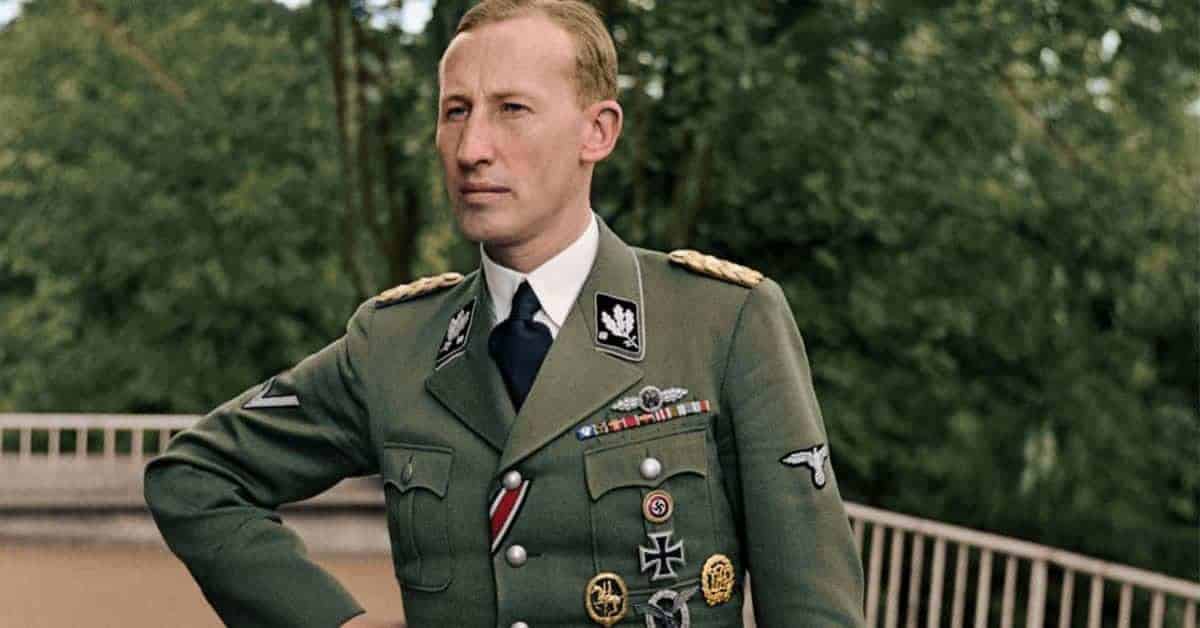Even by the low standards of high-ranking Nazi officials, Heydrich was a monstrous human being. Many historians regard him as the evilest of the Nazi elite, and Hitler referred to him as ‘the man with the iron heart.’ He happily carried out his orders to murder innocent people, and he is directly responsible for the deaths of millions during World War II. It is impossible to determine what depths he would have sunk to during the rest of the conflict but fortunately, we will never know as he was fatally wounded in an assassination attempt in Prague on May 27, 1942; he died 8 days later. In this article, I will look at 7 interesting facts about the Blond Beast.

1 – He Showed No Early Signs of Evil
Heydrich was born in Halle a der Salle on March 7, 1904, and was a frail and weak child who regularly suffered from illnesses. He was a determined young boy and refused to let his physical weakness prevent him from participating in sports such as football and fencing. His family was wealthy due to his father’s success in the field of music plus the fact that his mother was independently wealthy.
Heydrich harbored ambitions of becoming a chemist, but he also enjoyed detective and spy novels. There is little doubt that he was an intelligent individual and he was able to play the violin and piano and read music by the age of 6. In essence, he was clever, talented and cultured and displayed no early signs of his evil nature. However, he was bullied by other students in school and apparently hated his high-pitched voice. Heydrich also allegedly had Jewish ancestry and was the recipient of taunts from other kids because of it.
It also doesn’t appear as if Germany’s defeat in World War I caused him to become a tyrant either. Violence between communist and anti-communist groups took place in Halle in 1919 and Heydrich joined Maercker’s Volunteer Rifles aged 15. However, there is no evidence that he fought with the Freikorp and his main involvement in this parliamentary activity was to show off his uniform to his friends.
Despite claiming that he joined right-wing organizations in the years before the Nazi Party was formed, there is no evidence to support this. It is apparent however that his brief flirtation with the Freikorps made it clear to Heydrich that violence was an important part of politics. He joined the Navy in 1922, and it was here that his ambitious and ruthless nature really came to the fore.

